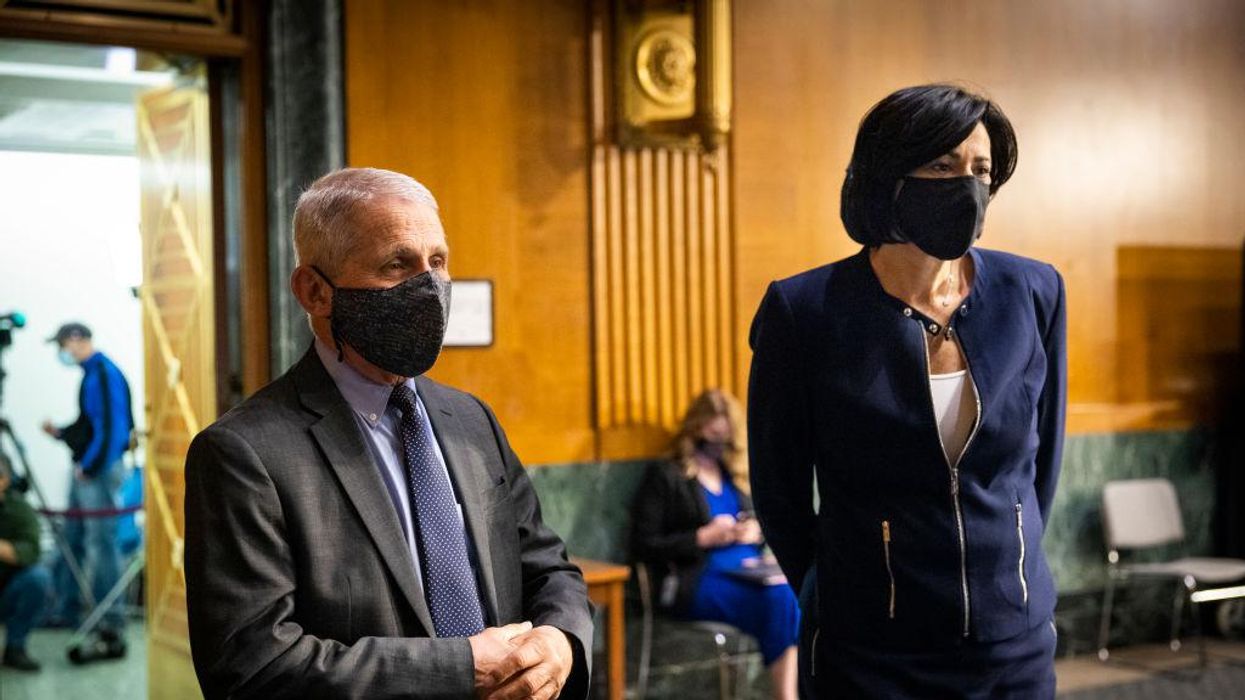
Jim Lo Scalzo-Pool/Getty Images

National public health officials in the U.S. are saying that vaccinated Americans may want to consider wearing masks again when traveling to areas with a low vaccination rate.
Though more than 156 million people in the U.S. are now fully vaccinated, public health officials are raising concerns over the "Delta variant", a coronavirus variant that emerged in India and appears to be more transmissible than other forms of the virus. It remains unclear whether this version of the SARS-CoV-2 virus is deadlier than other versions, though some evidence suggests it is not.
In response to rising COVID-19 cases, believed to be caused by the Delta variant, some local communities are issuing strong recommendations for residents to return to masking, even if they've been fully vaccinated. Last week, the Los Angeles County department of Public Health in California and the St. Louis County and city public health departments in Missouri released health advisories urging a return to wearing masks indoors, NBC News reported.
Reached for comment, Centers for Disease Control and Prevention Director Dr. Rochelle Walensky explained that vaccinated Americans are protected from all known variants of the virus that causes COVID-19, but may want to consider wearing a mask to protect unvaccinated individuals in their communities.
"If you're vaccinated, you have a very high degree of protection from all of the variants that we are aware of circulating in the United States," Walensky told NBC News.
Over 55% of Americans eligible for a COVID-19 vaccine have been fully vaccinated with both doses, which while significant means millions of Americans who can be vaccinated still are not. Walensky said there are an estimated 1,000 counties in the U.S. where fewer than 30% of residents have been vaccinated.
"If you're in a community that has a high amount of disease and less than a third of your population is vaccinated, one should consider whether the policy should be to mask," she said, explaining that masking is "more about protecting the two-thirds of the community that are not vaccinated."
National Institute of Allergy and Infectious Diseases Director Dr. Anthony Fauci, the White House's top advisor on COVID-19, made similar comments to NBC News anchor Chuck Todd on "Meet the Press" Sunday.
Fauci said vaccinated Americans should "go the extra mile" when traveling to parts of the country with a low vaccination rate.
"Vaccines are not, even as good as they are and highly effective, nothing is 100%," Fauci said.
"If you put yourself in an environment in which you have a high level of viral dynamics and a very low level of vaccine, you might want to go the extra step and say 'When I'm in that area where there's a considerable degree of viral circulation, I might want to go the extra mile to be cautious enough to make sure that I get the extra added level of protection, even though the vaccines themselves are highly effective," he added.
The worry among scientists is that because the Delta variant is highly transmissible, vaccinated Americans may still carry the virus — even though they don't get sick — and spread it to people who have not been vaccinated. But whether this actually happens is unknown.
CDC guidelines currently state that fully vaccinated Americans may resume activities they participated in before the COVID-19 pandemic and may do so without wearing face coverings or social distancing. There is no indication that those guidelines will soon change.
Recommendations to return to masking are precautionary in the face of uncertainty and are meant to protect the unvaccinated. The personal decision on whether to wear a mask should balance the risks of doing so against the risk of spreading COVID-19, a deadly disease.
More than 33 million Americans have tested positive for COVID-19 and more than 600,000 have died from the disease since the outbreak of the pandemic.